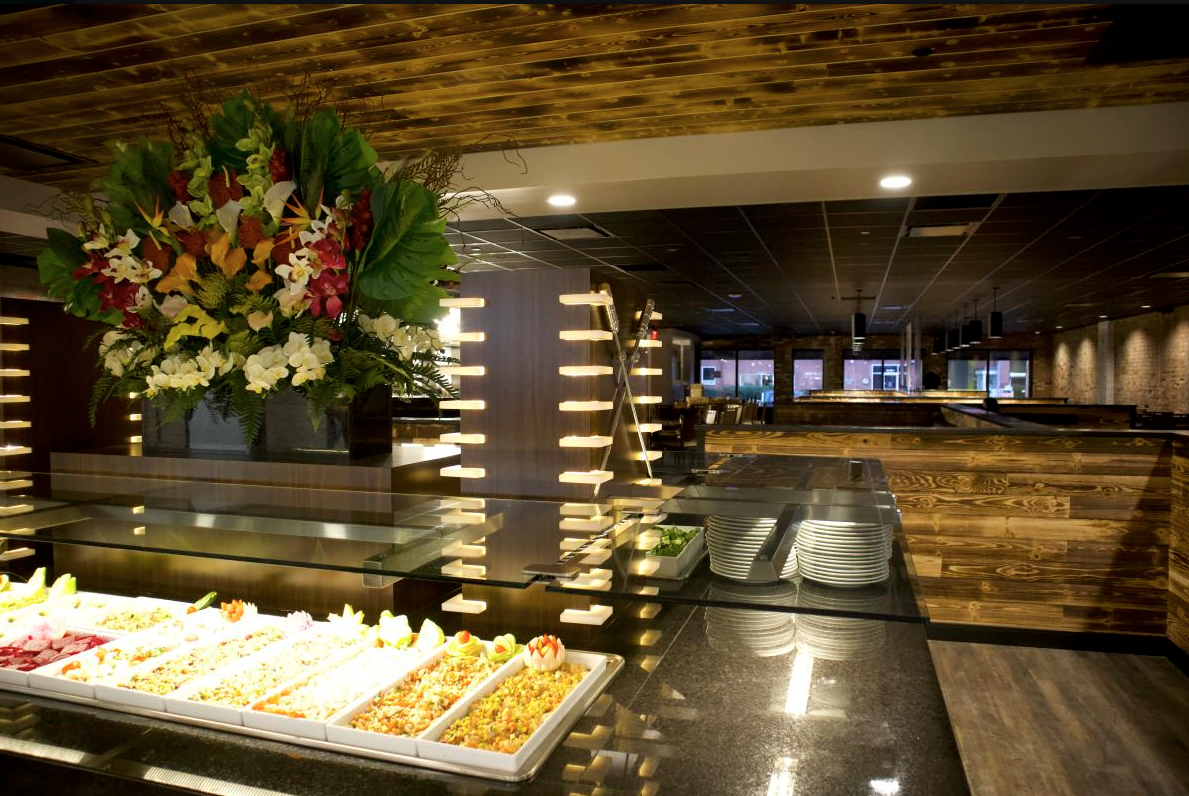
With March 31, 2025 rapidly approaching, restaurant operators using AI phone systems for payment processing face a critical deadline. The new PCI DSS v4.0 requirements demand immediate attention, especially for establishments leveraging voice AI technology to handle customer payments over the phone. (Vapi)
For restaurants using platforms like Hostie AI, which handles over 80% of guest communications automatically for partner establishments such as Flour + Water and Slanted Door, ensuring PCI compliance while maintaining seamless payment processing is essential. (AI Phone Host Integration) The stakes are high: over two-thirds of Americans are willing to abandon restaurants that don't answer their phones, making reliable, compliant phone payment systems crucial for business survival. (AI Phone Host Integration)
This comprehensive guide provides restaurant operators with a month-by-month checklist to achieve PCI DSS v4.0 compliance before the deadline, covering SAQ selection, tokenization flows, and voice-recording redaction strategies.
The Payment Card Industry Data Security Standard (PCI DSS) is a global framework designed to protect credit card information, and any organization processing, storing, or transmitting cardholder data must comply with PCI DSS. (Vapi) The v4.0 update introduces stricter requirements specifically targeting voice-based payment systems and AI-powered customer interactions.
Key requirements for PCI compliance include securing data collection, transmission, and storage, implementing strong access control measures, and regularly monitoring and testing systems to prevent breaches. (Vapi) For restaurants using AI phone systems, this means ensuring that sensitive payment information never touches recorded lines or unsecured storage systems.
Restaurants implementing AI reservation systems with native Toast integration are seeing an average 26% lift in covers, making these systems increasingly attractive. (2025 Best AI Restaurant Reservation Systems) However, with in-demand establishments receiving between 800 and 1,000 calls per month, the volume of potentially sensitive payment data flowing through these systems is substantial. (Restaurant Tech Trends Q4 2025)
The challenge lies in maintaining the conversational flow that makes AI hosts effective while ensuring payment data never enters the scope of PCI compliance requirements. Popular restaurants receive between 800 and 1,000 calls per month, averaging 187 calls daily, but only 30% have systems capable of answering or routing calls effectively. (Peak-Hour Accuracy Showdown)
Week 1-2: Current State Analysis
Week 3-4: SAQ Selection
Choose the appropriate Self-Assessment Questionnaire (SAQ) based on your payment processing model:
| SAQ Type | Best For | Compliance Scope |
|---|---|---|
| SAQ-A | Outsourced payment processing with no cardholder data storage | Minimal scope, easiest compliance |
| SAQ-A-EP | E-commerce with outsourced processing | Moderate scope |
| SAQ-B | Imprint machines or standalone terminals | Traditional POS systems |
| SAQ-C | Payment application connected to internet | Most AI phone systems |
| SAQ-D | All other merchants | Full compliance requirements |
For most restaurant AI phone systems, SAQ-C or SAQ-D will apply unless you implement complete payment data isolation.
Tokenization Implementation
Implement secure tokenization flows that keep cardholder data out of your AI system's scope. Solutions like Sycurio provide a secure, PCI DSS Level 1-certified infrastructure for processing payments across various channels including voice, digital, IVR, and AI-powered bots. (Sycurio)
Voice Recording Redaction
Set up systems to automatically detect and redact payment information from voice recordings. HostedPCI's IVR system is designed to ensure that when payment details are required, the customer receives a secure callback, effectively removing sensitive payment information from recorded lines and significantly enhancing data security. (HostedPCI)
POS Integration Compliance
Ensure your AI phone system integrates securely with existing POS systems. Hostie AI allows restaurant operators to integrate an AI voice assistant with their existing reservation and POS systems in under an hour, but compliance requires careful attention to data flow. (Hostie AI Integration Guide)
Testing Protocols
Policy Documentation
Create comprehensive policies covering:
Staff Training
Train all staff on new PCI compliance procedures, especially those who might handle payment-related customer service issues.
Third-Party Assessment
Engage a Qualified Security Assessor (QSA) to validate your compliance implementation. This is particularly important for restaurants processing high volumes of payments through AI systems.
Remediation
Address any gaps identified during the assessment process.
Final Documentation
Complete all required SAQ documentation and submit to your acquiring bank or payment processor.
Ongoing Monitoring Setup
Implement continuous monitoring systems to maintain compliance beyond the March 31 deadline.
Customer Call → AI Host → Payment Intent → Secure Callback → Payment Gateway
↓
No Card Data Stored
The key to PCI compliance with AI phone systems is ensuring cardholder data never enters the AI processing environment. When a customer needs to make a payment:
Real-Time Redaction
Post-Processing Redaction
Sycurio's solutions reduce the scope of PCI DSS by moving the merchant status to SAQ-A for all protected voice and digital payments. (Sycurio) This approach significantly simplifies compliance requirements by ensuring payment data never enters your primary systems.
The three leading AI phone answering systems with native Toast POS integration are Hostie AI, Maple, and Slang.ai. (2025 Best AI Phone Answering Systems) When implementing PCI compliance with Toast integration:
AI platforms like Hostie can handle calls, texts, emails, reservations, and order placements, integrating seamlessly with major reservation systems and leading POS systems. (AI Phone Host Integration) For PCI compliance:
Problem: Storing voice recordings that contain payment information
Solution: Implement real-time redaction or secure callback systems that prevent payment data from being recorded
Problem: Using customer conversations containing payment data to train AI models
Solution: Implement data sanitization processes and use only redacted conversations for AI training
Problem: Payment data flowing through non-compliant integration points
Solution: Use tokenization and ensure all integration points maintain PCI compliance
Problem: Too many staff members having access to payment-related systems
Solution: Implement role-based access controls and regular access reviews
| Component | Estimated Cost | Frequency |
|---|---|---|
| QSA Assessment | $5,000-$15,000 | Annual |
| Tokenization Service | $0.10-$0.25 per transaction | Ongoing |
| Voice Redaction Software | $500-$2,000/month | Monthly |
| Staff Training | $1,000-$3,000 | Annual |
| Total First Year | $15,000-$35,000 | - |
Risk Mitigation
Operational Benefits
With AI-powered phone systems becoming the new standard for handling calls in the restaurant industry, particularly in major cities like New York City, Miami, Atlanta, and San Francisco, compliant systems enable restaurants to capture more revenue. (2025 Best AI Phone Answering Systems)
Independent restaurants with under 100 seats receive between 800 and 1,000 calls per month, making AI systems a cost-effective solution compared to human hosts who cost $17 per hour. (2025 Best AI Phone Answering Systems)
The market for Voice AI in restaurants is projected to expand from $10 billion to $49 billion by 2029. (Restaurant Tech Trends Q4 2025) This explosive growth makes PCI compliance not just a regulatory requirement but a competitive necessity.
Over 500,000 restaurant calls were analyzed between Q4 2024 and Q2 2025, comparing the performance of AI online assistants against traditional live hosts during peak dining hours. The results revealed a 91% drop in hold time and an 87% reduction in missed calls when AI handles the phone. (Peak-Hour Accuracy Showdown)
Hostie AI and Loman are the two dominant platforms in the restaurant AI space in 2025, with call volumes averaging 1,200+ monthly for a typical 50-seat bistro. (Hostie AI vs Loman) Hostie AI delivers restaurant-native conversational AI with 85%+ prompt coverage. (Hostie AI vs Loman)
Hostie AI is designed for restaurants, made by restaurants, with security considerations built into the platform from the ground up. (Introducing Hostie) The platform's automated guest management system learns and engages with nuance while maintaining strict data security protocols. (Introducing Hostie)
The AI integrates directly with the tools you're already using – existing reservation systems, POS systems, and even event planning software – while maintaining secure data handling practices. (Introducing Hostie) This seamless integration approach ensures that security isn't compromised for convenience.
Establishments like The Slanted Door Group have seen significant improvements in operational efficiency while maintaining security standards. (Slanted Door Group Success) The platform's ability to handle high call volumes while maintaining compliance makes it an attractive option for busy restaurants.
The March 31, 2025 PCI DSS v4.0 deadline is rapidly approaching, but restaurant operators who take action now can achieve compliance while maintaining the operational benefits of AI phone systems. The key is implementing secure payment flows that keep cardholder data completely separate from AI processing systems.
With the restaurant industry increasingly adopting voice AI technology – 57% of hospitality owners worldwide have adopted automation as a critical survival strategy – ensuring these systems are PCI compliant is essential for long-term success. (Hostie AI Integration Guide) Additionally, 58% of people aged 18-38 are more likely to return to restaurants that use automation, making compliant AI systems a competitive advantage. (Hostie AI Integration Guide)
By following this month-by-month checklist and implementing proper tokenization, voice redaction, and secure integration practices, restaurants can meet the PCI DSS v4.0 requirements while continuing to leverage AI technology to improve customer experience and operational efficiency. The investment in compliance today protects against significant financial and reputational risks while positioning your restaurant for continued growth in an increasingly automated industry.
💡 Ready to see Hostie in action?
Don't miss another reservation or guest call.
👉 Book a demo with Hostie today
March 31, 2025 is the mandatory compliance deadline for PCI DSS v4.0, the latest Payment Card Industry Data Security Standard. Restaurants using AI phone systems for payment processing must meet these new requirements to continue accepting credit card payments legally. Non-compliance can result in hefty fines, increased transaction fees, and potential loss of payment processing privileges.
Hostie AI integrates with PCI DSS Level 1-certified payment processing infrastructure to handle sensitive cardholder data securely. The system removes payment information from recorded lines and uses secure callback methods when payment details are required. This approach reduces the merchant's PCI DSS scope to SAQ-A level, significantly simplifying compliance requirements for restaurants.
Key requirements include securing data collection, transmission, and storage of cardholder information, implementing strong access control measures, and regularly monitoring and testing systems to prevent breaches. For AI voice systems specifically, this means ensuring payment data is never stored in call recordings, using encrypted transmission channels, and maintaining audit trails of all payment transactions.
Popular restaurants receive between 800 and 1,000 calls per month, with Hostie AI now handling over 80% of guest communications automatically for partner establishments like Flour + Water and Slanted Door. With this high call volume, PCI compliance becomes critical as even a small percentage of payment-related calls can expose restaurants to significant compliance risks if not properly secured.
Restaurants that fail to meet PCI DSS v4.0 compliance by March 31, 2025 face serious consequences including monthly non-compliance fees ranging from $5,000 to $100,000, increased transaction processing rates, potential termination of payment processing services, and liability for any data breaches. Given that AI systems handle high call volumes, the financial impact of non-compliance can be substantial.
Yes, restaurants can maintain all the benefits of AI phone systems while achieving PCI compliance. Solutions like Hostie AI deliver restaurant-native conversational AI with 85%+ prompt coverage while ensuring secure payment processing. The key is using PCI-compliant infrastructure that separates payment data handling from the AI conversation flow, maintaining both security and the 91% reduction in hold times that AI systems provide.
RELATED


